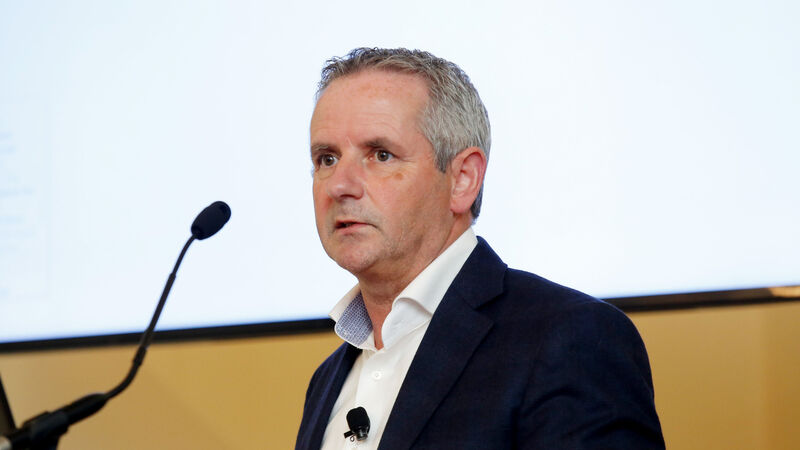HSE director: Gap tightening in emergency departments

Paul Reid, CEO, HSE said: "Every single hospitalisation that we have to deal with in relation to coronavirus has a very significant impact on the wider services that we are trying to sustain and provide." Picture: Leon Farrell / Photocall Ireland
The sacrifices of the past six months will be for nothing if emergency departments become overwhelmed — which is very possible if current trends continue, hospital chiefs have warned.
HSE director general Paul Reid said emergency departments are managing at this stage but the gap is tightening.
Surge plans will be implemented to attempt to stave off overwhelming the system, but the public is the first line of defence by doubling down on safety measures like social distancing and hand-washing, Dr Des Fitzgerald of University Hospital Waterford said.
The HSE's chief clinical officer, Dr Colm Henry, echoed comments from the Chief Medical Officer Tony Holohan that the exponential rise in cases will mean 1,200 to 1,400 cases per day by November 7 unless the current course is reversed.
It is a "tough and tedious" message, he said, but adherence and beyond of the current Level 3 restrictions in place could shift course.
Short of barb wire, it is impossible to keep Covid-19 out of vulnerable areas like nursing homes when community transmission is so potent, he said.
"It is still within our power," he said.
The HSE management would not be drawn on whether they agreed with the National Public Health Emergency Team (Nphet) recommendations to go to Level 5, the most extreme form of lockdown, but did not dispute assertions from assembled reporters that taking actions akin to Level 5 would be prudent in trying to suppress the rapid rise in cases throughout the country.
They similarly would not be drawn on when they thought the emergency departments would be at the point of being overwhelmed in the coming weeks if cases continued to rise, rather asserting there was still time to staunch the bleeding.
However, Paul Reid said: "Every single hospitalisation that we have to deal with in relation to Covid-19 has a very significant impact on the wider services that we are trying to sustain and provide."
Intensive care is now at 27 cases, having been just four at the beginning of August, while overall hospitalisations stand at 157.
There are currently 287 schools where testing is completed or ongoing, with 122 detected cases.
Almost 90,000 tests were completed last week, according to Mr Reid.
Some 1.2 million tests have been completed across the island, with an average turnaround of 1.9 days.
New staff, including 100 new swabbers and 140 tracers, are beginning between now and next week.
In relation to nursing homes, HSE chief operating officer Anne O'Connor said that although there has been a focus on nursing homes and their vulnerability to Covid-19, over half were free of the disease.
There are 576 nursing homes, with 440 run privately or on a voluntary basis.
The average capacity in nursing homes is 55 beds, while 312 have 50 beds or less, she said.





